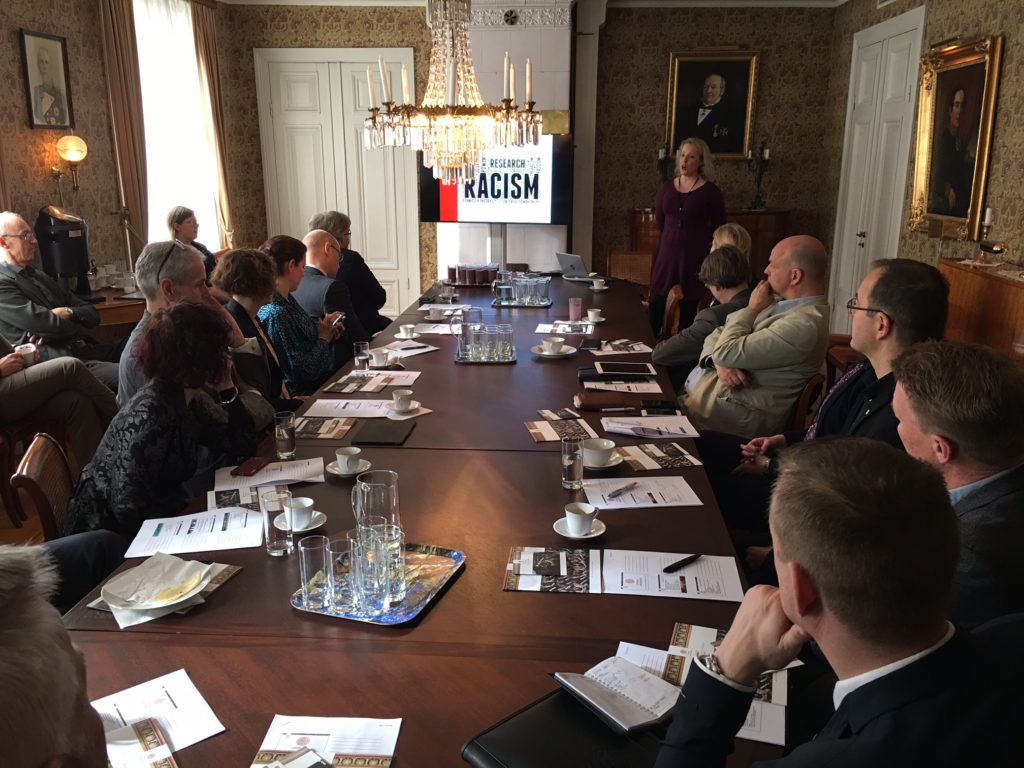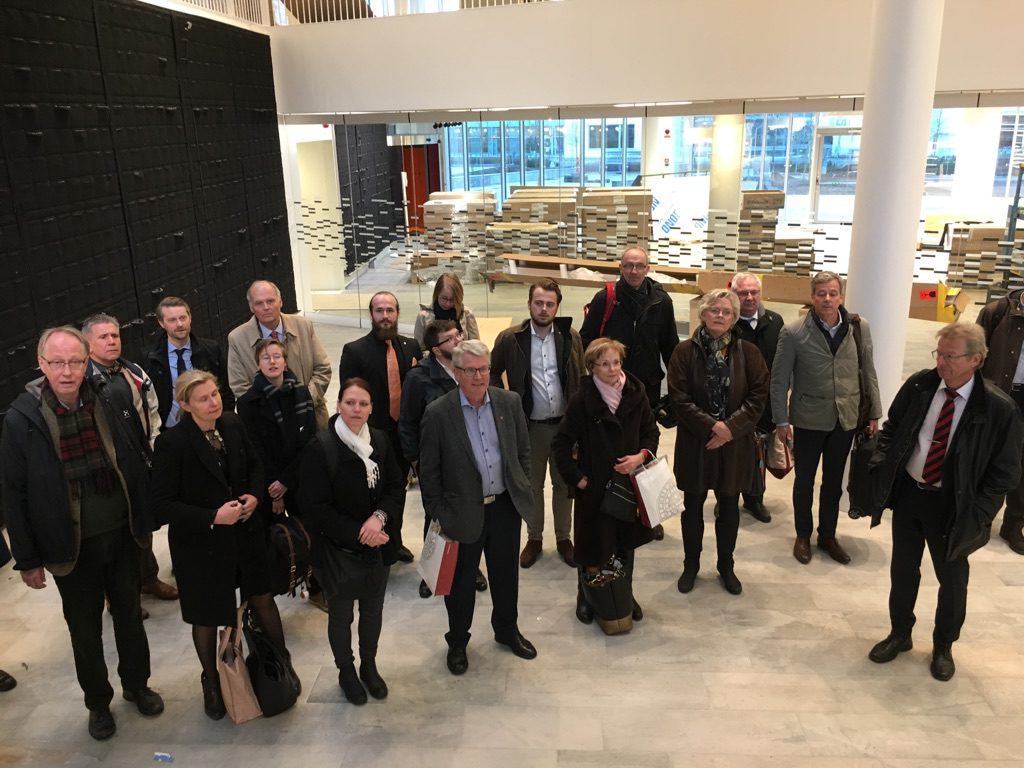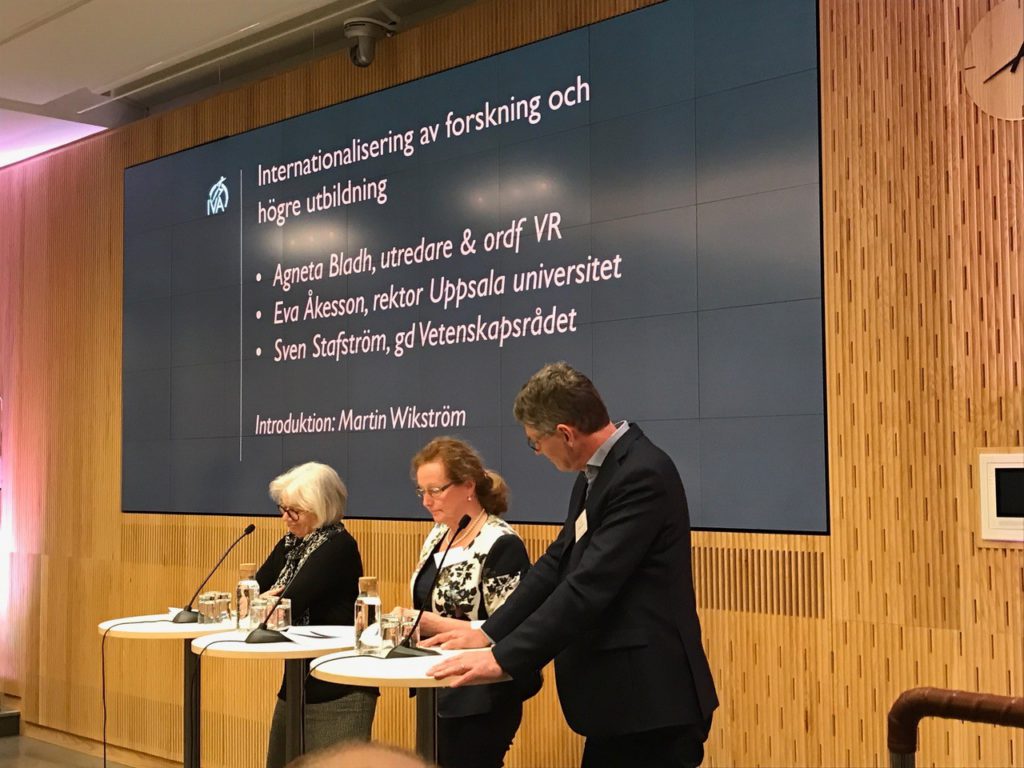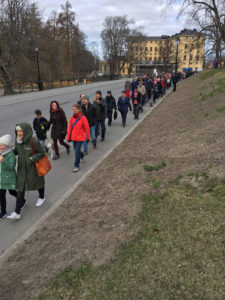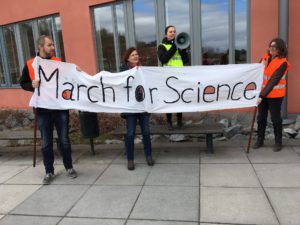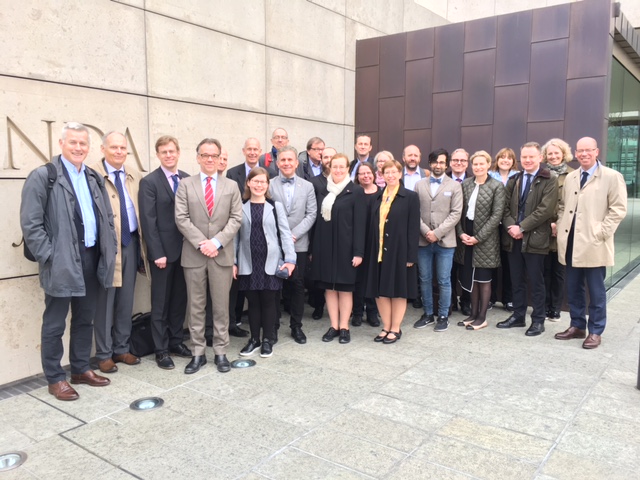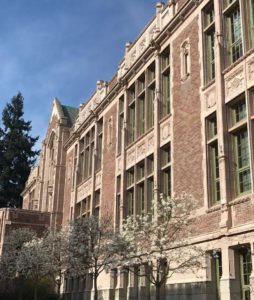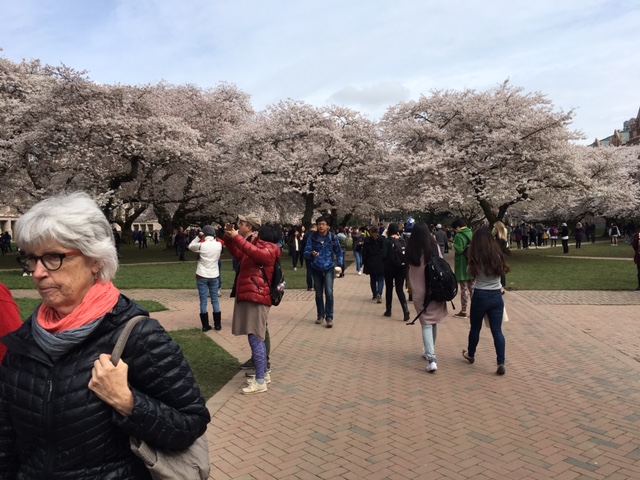(Original Swedish post published 19 April.)
In today’s edition of the web magazine Curie, I write about why international networks are needed in academia. Do read the article (in Swedish)! Or read it below (translated).
Coincidentally, a large delegation from the University of Tartu was here to visit us over the past couple of days. The University of Tartu is a member of the Guild, and also a member of Coimbra, the Baltic University Programme and the European Universities Association, just like us. During our talks over the past couple of days, we discussed more in-depth cooperation, compared governance models and strategies, analysed career systems and presented Q&R17. Next week municipal leaders from Tartu will visit our city – Uppsala and Tartu are twin towns, which adds an extra dimension to our collaboration.
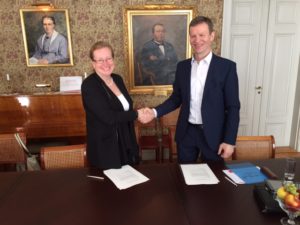
With Rector Volli Kalm of the University of Tartu.
Why international networks are needed in academia
Successful internationalisation requires cooperation. This is why Uppsala University was one of the co-founders of a new European university network in Brussels. Because of needless obstacles, Swedish higher education institutions have to work hard to be relevant partners in international cooperation, according to Vice-Chancellor Eva Åkesson.
Our world is facing a range of challenges. The refugee situation, threats to democracy and the freedom of expression, social exclusion, antibiotic resistance, climate change and sustainable development are examples, where Uppsala University is contributing by its knowledge at local, regional, national and international level. But these are issues that individual higher education institutions (HEIs) cannot solve on their own; networks and partnerships in the international arena are becoming increasingly important.
A global education market has long existed, with students moving between countries, while research is international by its very nature. This forces all HEIs to constantly enhance their attractiveness. But today, internationalisation is about much more than mobility; the process has gone further and is more complex and more important than it was just a few years ago. There are many joint educational programmes, research centres and collaboration projects in internationally integrated networks.
These days, a substantial proportion of funding for Swedish research comes from the EU. The total value of EU projects in which Uppsala University is participating stands at around EUR 50 million. We have significant cooperation with partners outside Europe as well. To give a couple of examples, in Nanjing, China, Uppsala University and several other Swedish HEIs are participating in building up a hospital with research and education dimensions, and in Hanoi, Vietnam, we have a campus presence and contacts with both universities and other actors in the area.
Given these developments, Swedish HEIs and our partners cannot operate solely in Swedish networks: we need to be at least as active in various international arenas. Every HEI needs to decide for itself how best to go about this, based on its own position and strategies.
We recognise the importance of European cooperation on education policy, and this is why Uppsala University was among the co-founders last autumn of a new European university network, The Guild of European Research-Intensive Universities. We currently have 18 members. The aim is to join forces to contribute knowledge on important future issues. But this network also provides increased opportunities to influence future European policy on research and education on the spot in Brussels, where we have a joint office. Cooperation strengthens ties and increases mutual trust, which opens doors to exchanges that reach far beyond student mobility.
Lund University has been a member of a similar network, LERU, for several years. All Swedish HEIs have their own goals for internationalisation and are working hard to be relevant partners in international cooperation.
The government’s objective must be to stimulate and facilitate our efforts, not to tell us what needs to be done. Being limited and obstructed by the Riksdag’s calendar and red tape, as we are at present, means we risk missing out on opportunities to act in international connections, and being perceived as difficult to work with.
Uppsala University was the only institution that had to delay full membership of the Guild for months because membership required prior approval from the Riksdag. This absurdity astonished our international colleagues and is just one example of needless obstacles to the increased internationalisation of Swedish HEIs. For example, we have encountered unreasonable obstacles in getting involved in KICs (Knowledge and Innovation Communities), which are advertised by the European Institute of Innovation and Technology (EIT), an EU body. We have faced numerous difficult legal complications. This is no help to Swedish HEIs in their internationalisation and no help to Sweden as a knowledge nation. Here, the universities pointed out the need for greater decision-making authority as much as two years ago, in the report of the Stockholm–Uppsala University Network, Ökad handlingsfrihet för statliga lärosäten (in Swedish) (Increased freedom of action for public higher education institutions).
There are therefore many good reasons to undertake an inquiry on internationalisation, and in February the government entrusted Agneta Bladh with this task. We hope the inquiry does not get stuck in the issue of mobility. It is important to broaden the perspective, and to see education and research as part of a whole picture. Collaboration with business and society also involves an international perspective. And most importantly: the focus must be on promoting, rather than controlling, internationalisation in the complex international landscape in which we find ourselves.
The best way to respond to the trends we are seeing today – political uncertainty, fact resistance and contempt for knowledge – is to strengthen the independence of the universities and defend critical thinking and the advancement of society on the basis of knowledge.
Eva Åkesson
Vice-Chancellor, Uppsala University

